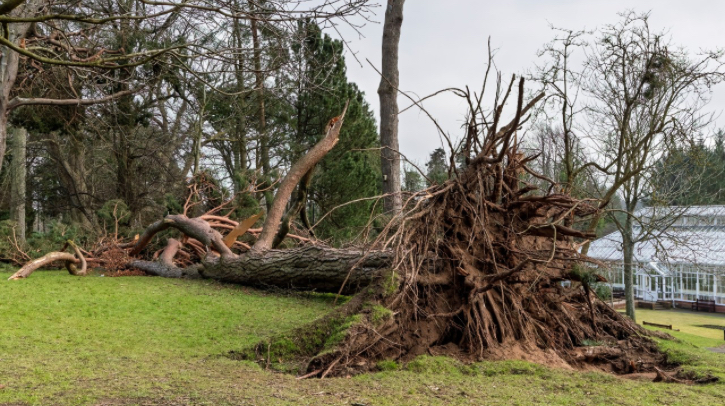A team of researchers – led by Colin Manning, a research associate at Newcastle University and visiting scientist at the Met Office – have published a study, Antecedent rainfall, wind direction and seasonal effects may amplify risk of wind-driven power outages, which highlights that incorporating the additional factors into a statistical model, alongside wind speed, greatly enhances the predictive accuracy of power outages during windstorms.
UK windstorm hazards
Windstorms are reportedly the leading cause of major power outages in the UK, primarily due to windthrow – the uprooting or breakage of trees, which then fall on overhead power lines. According to the Met Office, traditional risk assessments in the UK have focused solely on wind speed, overlooking critical factors that influence windthrow, such as antecedent rainfall, wind direction and seasonal elements like leaf cover. By analyzing power outage data from 2006 to 2018, the researchers have demonstrated that neglecting these additional factors can lead to an underestimation – by two to five times – of the likelihood of large power outages during windstorms.
Improving predictive accuracy
The probability of outages was found to be three to four times higher in summer than in winter for the same wind speed, likely due to leaves on trees providing a greater wind loading; and two to three times higher in wet conditions, and when wind direction largely deviates from the prevailing southwesterly direction. This was understood to be because trees are more vulnerable to uprooting in such conditions. When all conditions align, the probability of power outages can increase 4-5-fold, especially at lower wind speeds.
Manning said, “Windstorms have long been recognized as a threat to the UK’s electricity distribution networks, which are vital components of the nation’s critical infrastructure. Failures in these networks can cascade through other systems, affecting essential services. By taking the multiple weather conditions into consideration, we can significantly improve the accuracy of power outage predictions and better prepare for the impacts of extreme weather events.”
The research indicated the importance of understanding regional variability in the influence of these factors. Tree trimming practices, tree species and soil characteristics can vary regionally, highlighting the need for localized risk assessments. It also underscored the importance of understanding how these additional factors may change in a future climate if we are to accurately project the changing likelihood of power outages in the future.
Prof. Lizzie Kendon, strategic head of climate processes and projections at the Met Office, concluded, “This is the first UK study demonstrating the importance of additional factors affecting wind-driven power outages. Understanding how these factors will change and including them in future risk assessments is critical for accurately projecting the changing likelihood of power outages in the future. Changes in the seasonality of storms and increases in heavy rainfall with warming may act to compound the impact of strong windstorms in the future.”
In related news, the UK Met Office recently developed guidance and tools to improve the prediction of life-threatening flash flooding. Click here to read the full story.



